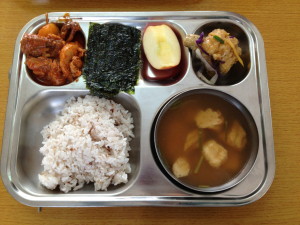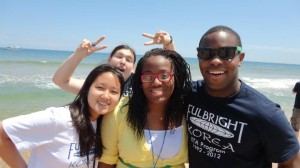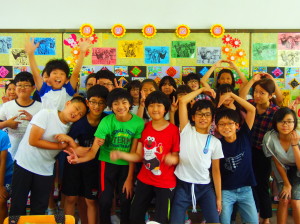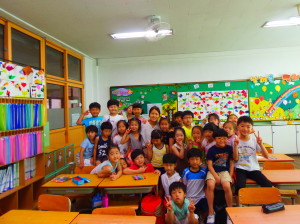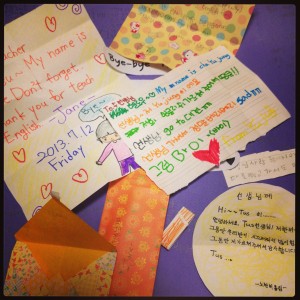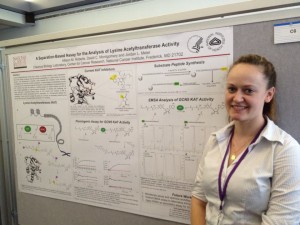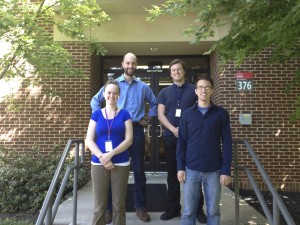Tsubasa Morioka graduated in 2012 with a B.S. in Information Management & Technology and won the Capstone Award for best Professional project for her thesis “Analyzing the Tea Party Movement, the Coffee Party Movement, and the Occupy Wall Street Movement: Case Study on How the Internet Influences Grassroots Social Movement.” After graduation, she spent a year in South Korea as a Fulbright English Teaching Assistant.
Want to learn more about the Fulbright Program? CFSA is holding an information session on April 4th, 12:30-1:30 PM in HL 107. RSVP here: http://nationalscholarships.syr.edu/?event=friday-focus-are-you-interested-in-graduate-study-or-an-internship-abroad
(Cross-posted from the Center for Fellowship & Scholarship Advising (CFSA) blog.)
1) Tell us about a particularly humorous moment in South Korea – maybe a moment of culture shock or misunderstanding?
My insas (formal greeting to teachers, elders, etc) definitely improved after this year. You’re supposed to bow and say hello in a formal way (anyeonghashimnika). And you’re supposed to bow to a 90 degrees for a particularly important person like a principal at the school. Initially, I couldn’t help but try and maintain an eye contact with the person I was saluting, because I always do that when I greet people in the States. But this looks terrifying if you’re bowing to a 90 degrees, as it looks like you’re glaring at the person you’re saluting. I’m happy to report that I no longer give a withering glare.
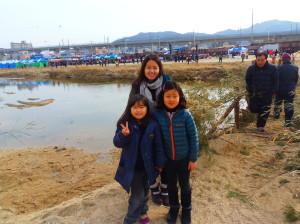
- Tsubasa with host sisters.
2) Who has been a particularly interesting person that you’ve met?
I lived with a host family and I had three host siblings: one girl in high school, one boy in middle school, and one girl in elementary school who is currently a third grader, Jongwon. Jongwon is a funny, kind and precocious child who sometimes acts as my workout coach when we go to the nearby park to exercise after school. (She rides on her bicycle and I jog alongside, trying to keep up as she shouts out words of encouragement such as, “let’s go!’ and “too slow, Tsu!”) She was my constant companion at home, and taught me a lot about Korean culture and language.
3) Describe a memorable meal you’ve had – the food, company, and setting.
During Fulbright Orientation in July, when we had time to get to know other grantees, transition to life in Korea and learn Korean, we went to Donghae on a group excursion for the weekend. Donghae is by the sea so the seafood is amazing! So two other Fulbright grantees and I tried raw squid and its nerves were still in tact! The tentacles would suck onto my tongue as I tried to chew and swallow! We went hiking in the afternoon and talked and chilled til late at night by the beach. Needless to say, this weekend was one of my highlights during orientation.
4) What are you doing for fun or relaxation?
I love going to the sauna with my host family on weekends! A sauna is a public, gender segregated bathhouse in Korea consisting of a place to wash, a steam room, a hot tub, a cool tub, and a sauna. There’s another one called jimjilbang where you can stay overnight and they have various amenities like a game room and resting rooms. My host family and I usually go every Saturday to a sauna. Once you get used to it, it’s a fun, relaxing, cleansing experience where you get to bond with your friends and/or family members in a most unorthodox manner. Other than that, I like exploring around Korea with other Fulbright grantees and going to one of many idiosyncratic, nongeneric coffee shops in my city.
5) Tell us about your teaching assignment. What’s your weekly schedule like?
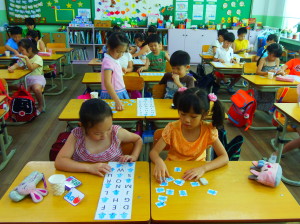
I teach about 16 hours a week. With 4th and 3rd graders, I co-teach with a Korean English teacher. With the rest of the grades, I teach on my own, but am often assisted by the home room teachers for giving instructions, etc. The classes are 40 minutes long. I have a small club class once a week with advanced English learners in the 6th graders. I also teach a very short, conversational English class for teachers during their weekly meetings for about 20 minutes.
As an elementary school teacher in Korea, I use a textbook for third through sixth graders for the majority of the time. I do phonics and literacy activities like letter recognition with first and second graders (and lots of singing).
The weekly schedule:
Mondays: 6th graders (3 classes)
Tuesdays: 5th graders (3 classes)
Wednesdays: 4th graders (3 classes)
Thursday: 3rd graders (3 classes)
Fridays: 1st and 2nd graders (4 classes)
6) Any advice for SU students applying to a Fulbright ETA?
Seek advice from various resources at SU early. (Honors Dept, advisors at your school, fellow peers, etc). Be engaged in activities that pertain to the grant type and the country you are applying to and write about it in your personal statement.
